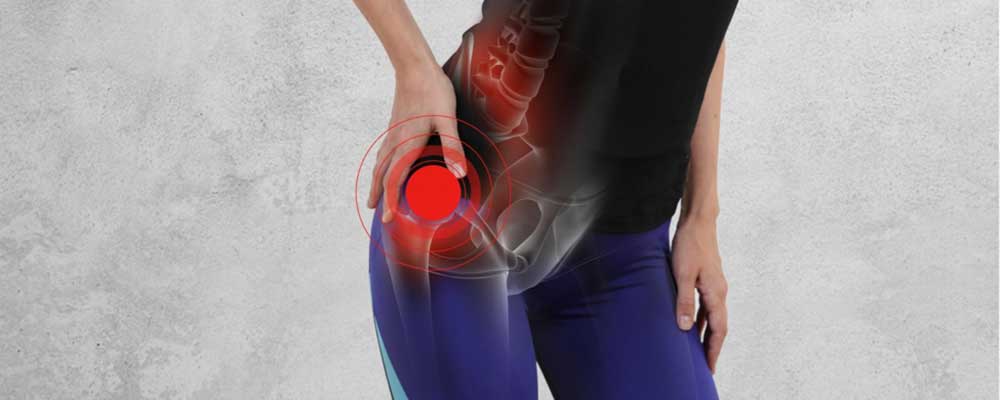Hip pain is a pain or ache over the outside or lateral hip region, deep in the groin or in the buttock.
Hip pain can also refer down the thigh or into the pelvis and lower back.
What causes hip pain?
Many conditions can cause hip pain and the most common causes are:
- Osteo-arthritis (more common if over 50)
- Strained muscle of groin or glutes
- Inflamed hip bursa (compression)
- Over loaded gluteal tendon (increase activity)
- Lower back problems
- Sacroiliac joint problem
- Injury or fall that may cause a fracture of the thigh bone (femur)
- Pinches sciatic nerve (sciatica)
Less common causes are:
- Infection
- Bone Cancer
What do I do if I have hip pain?
You will firstly need to have your hip pain assessed by a Physiotherapist to diagnose the reason you have hip pain and look at any causing factors.
This will involve a clinical examination of asking you questions and testing your hip with movement and looking at function.
If required, you will be referred for an Xray or MRI but this is only required if the diagnosis is not clear with the clinical examination.
Once your hip pain has been diagnosed, your Physiotherapist will advise on a management plan to resolve your pain and include simple home advice and hands on treatment like massage and mobilisation and advice on specific exercise.
How do I relieve hip pain?
Simple tips to relieve hip pain:
- Gentle exercise (need to be advised by your physio on the best gentle exercises for you)
- Heat or ice- depending on the problem with your hip
- Stretch tight muscles
- Strengthening your lower back, core and glutes
- Exercise in water- Hydrotherapy
- Avoid high impact exercise especially if you have arthritis
- Lose weight for arthritis relief
- Rest your body if needed
- Manage your stress and tension in your body
- Massage and mobilisation at hip joint as advised by your Physio
By Russell Tuckerman, Principal Physiotherapist at East Gosford Physiotherapy and Sports Injury Centre



